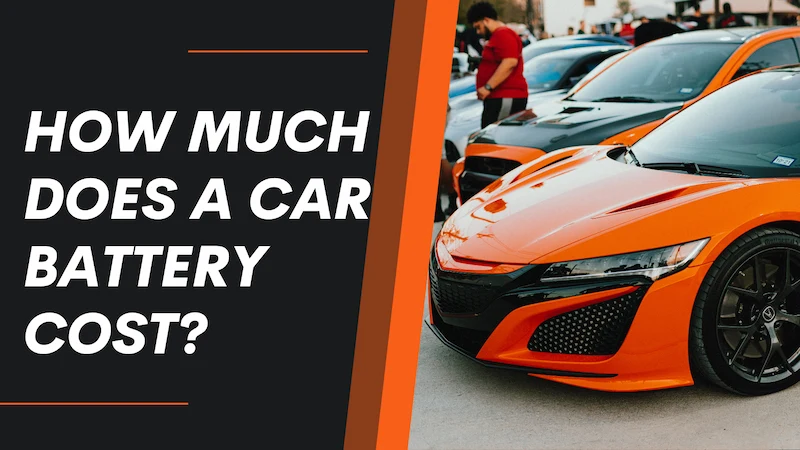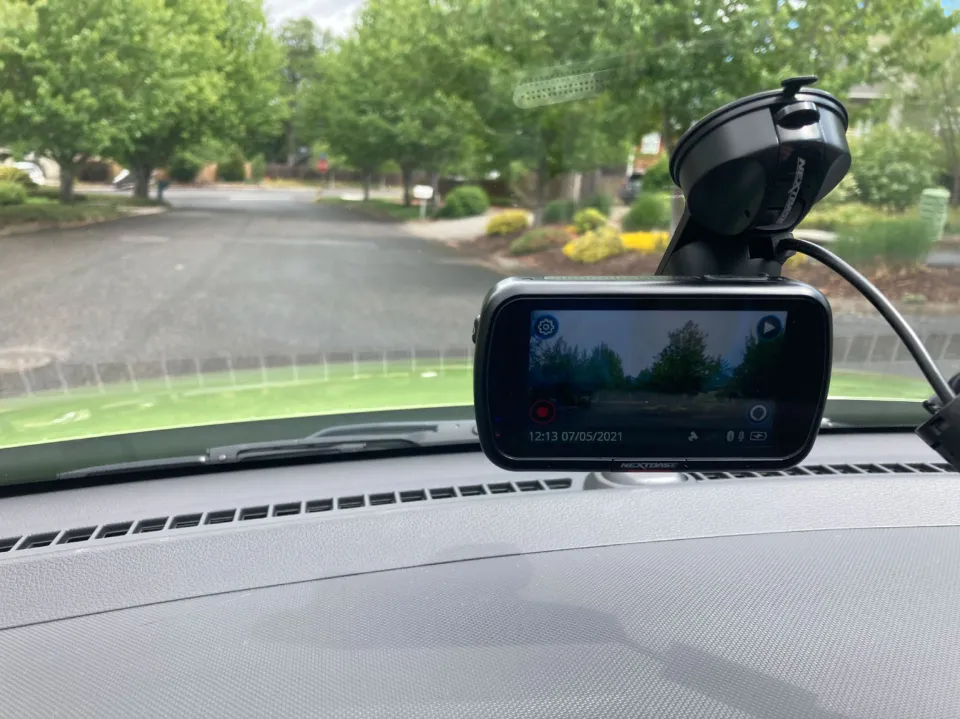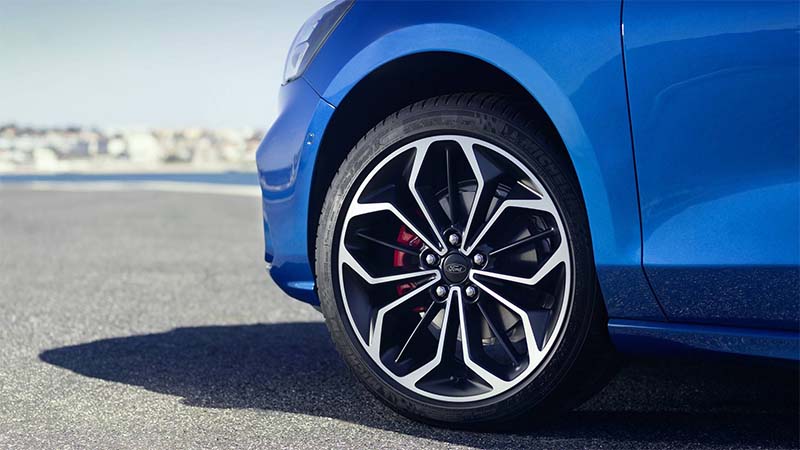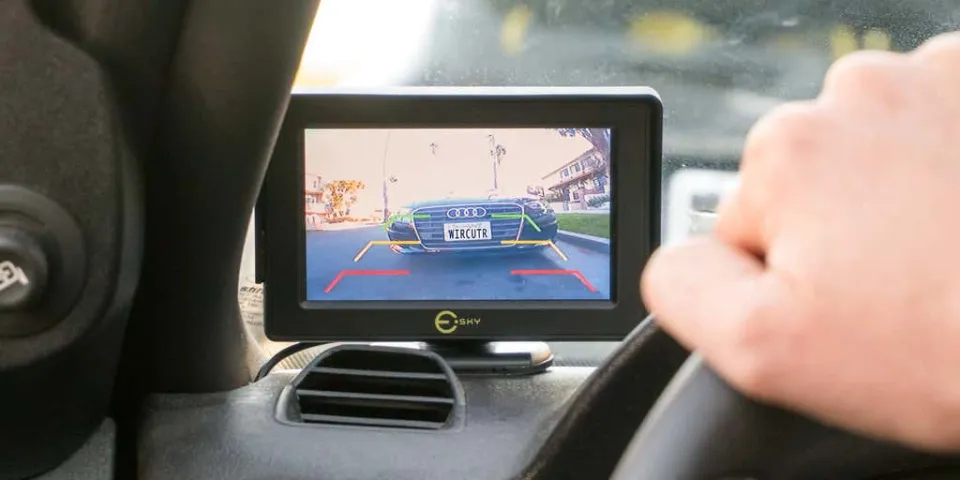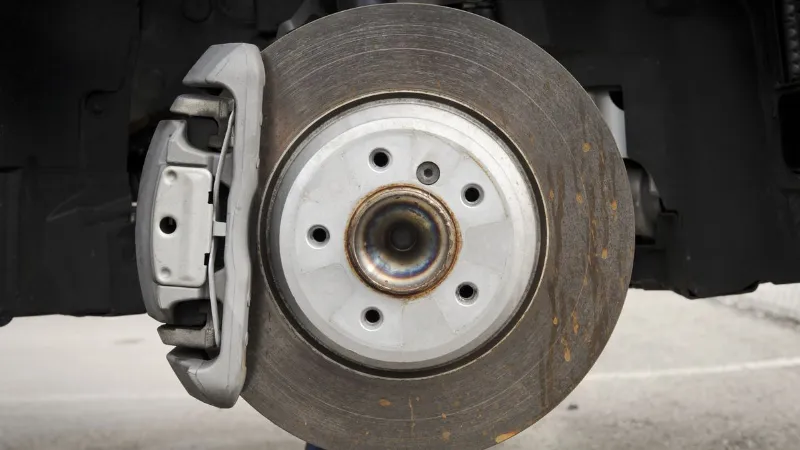Knowing “How Much Does a Car Battery Cost?” is crucial when you have an unexpected expense, like a failing battery.
The price of a conventional battery can range from $60 for one with a short lifespan to upwards of $300 for one that offers high performance, depending on what you’re looking for.
Here is a summary of the typical prices for conventional car batteries. Keep reading.
How Much Does a Car Battery Cost?
Here are some things that affect how much a car battery costs.
Car Battery Cost and Performance
The requirements for various vehicles vary. For instance, an older car without the newest bells and whistles won’t drain the battery as much as a newer or luxury car.
There are external conditions that factor into the cost of a battery, too. The cold cranking amps (CCA) of batteries is one method of rating them. This is a test to see how well your battery will work in the cold. This rating specifically states the number of amps the battery can deliver for 30 seconds at 0 degrees Fahrenheit while still maintaining a predetermined minimum voltage. Expect the price to reflect a higher CCA if you live in a colder region where the demands on your car battery are higher.
Warranty and How Long the Battery Will Last
There is something to be said for the assurance provided by a reliable warranty, don’t you think? That goes for anything, but it’s especially true on a car battery, which can really ruin your day when it fails unexpectedly. You can buy with confidence knowing that its replacement will be covered for two, three, or even four years.
It is true that a battery’s price and warranty are related. Affordable batteries do, of course, have a good price, but they typically have a poorer warranty. Because it frequently stays under $200 and comes with a fantastic three-year free replacement policy, many people think the DieHard Gold is the best option here.
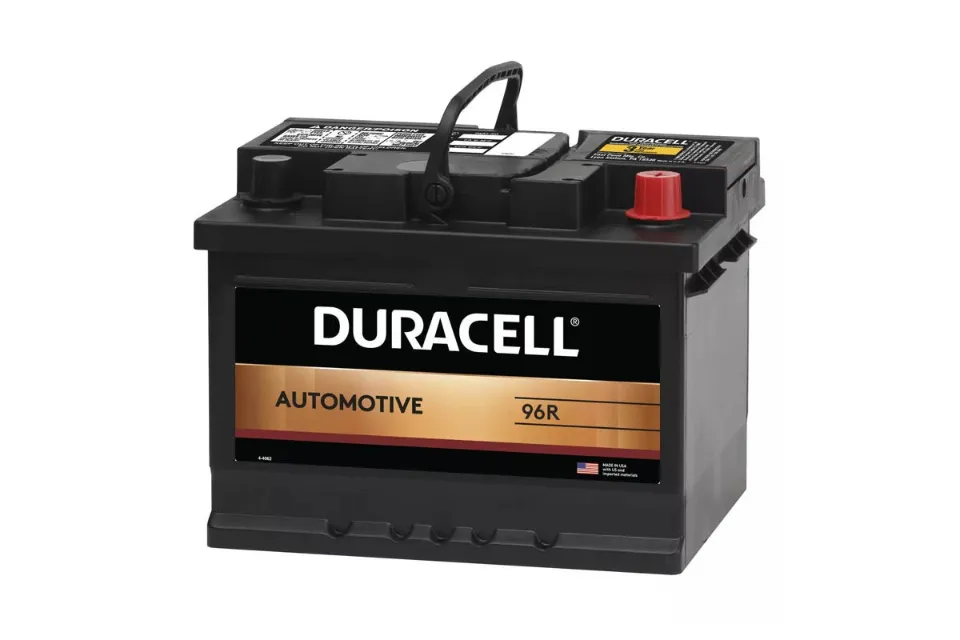
Battery Construction
Batteries have improved over time, just like most other technologies. Let’s examine in greater detail two popular battery types: flooded lead-acid and absorbed glass-mat (AGM).
Flooded Lead-acid Batteries
The tried-and-true battery technology is used by flooded lead-acid batteries. Let’s return to the beginning to comprehend how they operate. In order to start your car’s engine, the battery’s main job is to supply power to the starter. Lead-acid batteries excel in situations where the task requires a large burst of energy. In short bursts, they provide power, and as you drive, the alternator recharges them.
A lead-acid battery is composed of six cells housed inside the case. Each cell is essentially a 2.1-volt battery, which is how we have 12.6-volt automotive batteries. Each cell consists of insulating separators that keep the positive and negative plates from touching, at least one positive plate, at least one negative plate, and insulating separators. Each cell is submerged in an electrolyte fluid that is a mix of sulfuric acid and water.
Here’s a simplified explanation of how these batteries operate:
- The positive and negative plates are different metals.
- Different metals placed in an acid cause electrons to flow between the plates. (The flow of electrons in a circuit is known as electric current.)
- As a battery loses its charge, the sulphate in the electrolyte fluid reacts with the positive and negative plates, leaving only water behind. Sulphate is returned to the electrolyte solution during battery charging.
The cost of flooded lead-acid batteries is typically lower.
AGM Batteries
An AGM battery is a newer, superior type of lead-acid battery. The sulfuric acid in AGM batteries is completely absorbed into the fiberglass separator, which is used in place of the lead plates and sulfuric acid. There are multiple benefits to this design, including:
- To understand why we prefer spill-proof batteries, compare a cup of water to a wet paper towel that falls to the ground.
- Instead of being released during typical use of a flooded lead-acid battery, gases are absorbed into the fiberglass mat. By doing this, the battery can be mounted in any position and the problem of evaporating electrolyte is also avoided.
- AGM batteries typically have a longer lifespan than flooded lead-acid batteries, lasting years longer on average.
- less self-discharge AGM batteries are better able to maintain their charge when not in use.
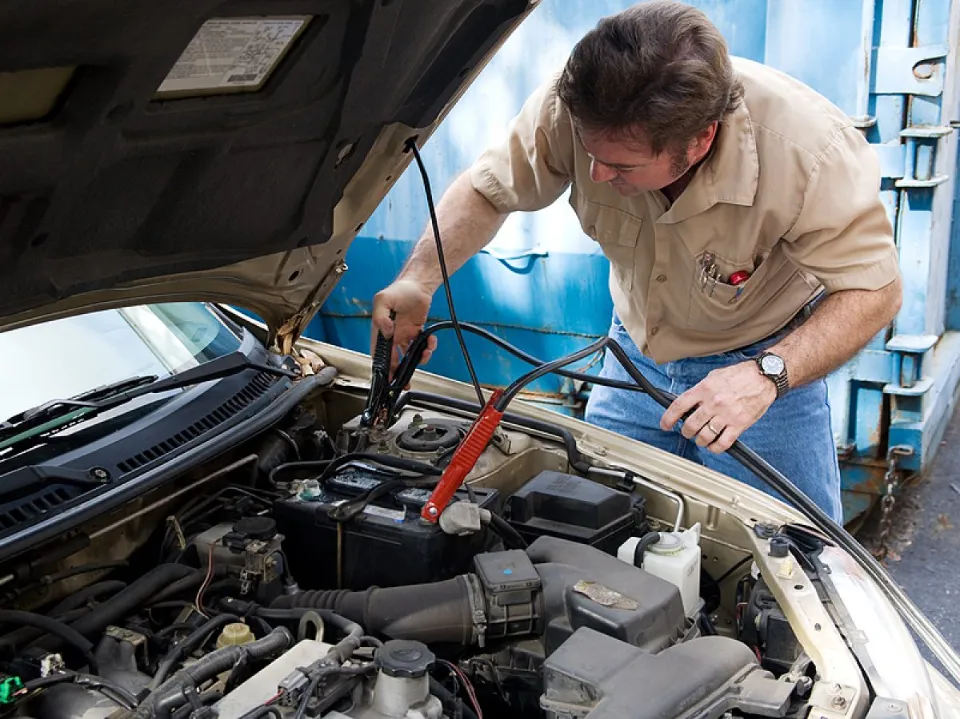
What Does the Car Battery Do?
Even though they’re relatively small, car batteries play a crucial role in your vehicle. They give all electric components the jolt of electricity they require. Your car won’t start or be able to move without it.
Batteries work in a pretty straightforward way and do the following:
- start your car by starting a chemical reaction.By supplying the starter with the full voltage, the battery transforms chemical energy into the electrical energy required to power your car.
- Keep the electric current steady. Your battery supplies the power required to start your car and maintains a constant voltage.
How Long Does a Car Battery Last?
If you always drive in ideal conditions, which include no high temperatures and no excessive humidity, a car battery should last up to six years. The lifespan of your car’s battery is primarily affected by two factors: how long it can maintain a charge and how long it can be recharged after replacement. Be aware that once a battery is dead, it cannot be recharged.
Over time, the battery’s ability to store energy and be recharged decreases. A battery’s warranty and lifespan never relate to its cost. Though a vehicle and its condition determine a battery’s exact lifespan, most cars may require a new battery every four years.

Signs Your Battery is Failing
Since the battery is so important, any problems should be obvious. Let’s look at some typical signs of failing batteries, just in case.
If something is wrong with your battery, you may experience the following:
- Slow engine crank.Whenever you start the vehicle, the engine cranking is sluggish and takes longer than usual to start.
- Check engine light.The check engine light sometimes illuminates when battery power is too weak. Additionally, the engine coolant lights may also illuminate for the same reason.
- Lack of battery fluid.So that you can check the level of coolant, your battery should always have a transparent case portion. Alternatively, you could remove the red and black caps if they are not sealed.
- the battery case is swollen or bloated.Heat buildup could significantly shorten the life of your battery by causing the case to swell.
- Unpleasant smell.Another possibility is the smell of rotting eggs. Leaks in the battery are frequently to blame, and they may even contribute to corrosion around the ports (where the + and – cables are located). The gunk might also need to be replaced if you want the car to start.
In general, batteries that have been in use for three years or longer should be inspected. The life cycle can be shortened, though, by your driving habits, the outside temperature, and frequent short trips. You’ll need to look for a replacement in those circumstances.
Why Are Car Batteries So Expensive?
The short answer is that using technology always has a price. The majority of manufacturers are now using AGM batteries, which is one of the factors contributing to the rise in car battery prices. These batteries are capable of meeting the needs of modern, powerful electric vehicles. Thus, the average cost of a new car battery is about $156. When compared to conventional lead-acid batteries, AGM batteries can cost anywhere between 40% and 100% more. The best batteries in almost all sizes range in price from $200 to $300.
Due to COVID-19’s effects, the cost of materials, transportation, and labor has increased, which has raised the price of car batteries as well. The majority of customers select more expensive batteries, typically selecting models for products that fall at the top of the “good, better, best” scale.
How Much Does An Electric Car Battery Cost?
A basic electric vehicle (EV)’s average battery costs about $6,300 at the current rates and pack sizes. Premium models, however, have even higher battery costs. The expensive batteries are a result of the materials used to make them. Similar to the rechargeable lithium-ion batteries that power your phone or laptop, an EV uses bigger batteries.

FAQs
Is It Cheaper to Replace Your Own Car Battery?
Cheaper: The main reason to replace the battery yourself is to save money on labor. Doing the work yourself can be a great deal cheaper than what a garage or service center would charge to simple swap out a part.
What Shortens Car Battery Life?
Its lifespan may be shortened by factors like prolonged partial or complete discharge, vibration from improper mounting, under- or overcharging, extremely high or low temperatures, water loss, contaminated electrolyte, and terminal corrosion.
Does Driving Slower Save Battery?
Not only will you avoid getting a speeding ticket, but you’ll also extend the life of your battery. The Department of Energy says you’ll use 14% less energy by reducing your speed by 10 mph.
Does Turning Car Drain Battery?
Every time you start your car, your battery expends an enormous amount of energy in order to start the engine. The alternator then supplies the battery with the new energy it needs to refuel while the car is being driven. That’s why regular driving is so important.
Summary: How Much Does a Car Battery Cost?
The price of a conventional battery can range from $60 for one with a short lifespan to upwards of $300 for one that offers high performance, depending on what you’re looking for.
Because batteries have different life spans and their costs can vary, they can represent a regular portion of maintenance when calculating the total cost of owning a car.
The maintenance of a car includes replacing the battery. If you notice any of the symptoms or your ride doesn’t start, you should buy a new one as soon as possible. The price will depend on the warranty, the type, and the performance, so you should always seek advice to make the best decision.
If you have any questions, please leave a comment. KV Auto tries to give you the best car industry information. Thank you for reading.

